Who are some of the “papabili”? A (partial) list of possible candidates to become the next Pope
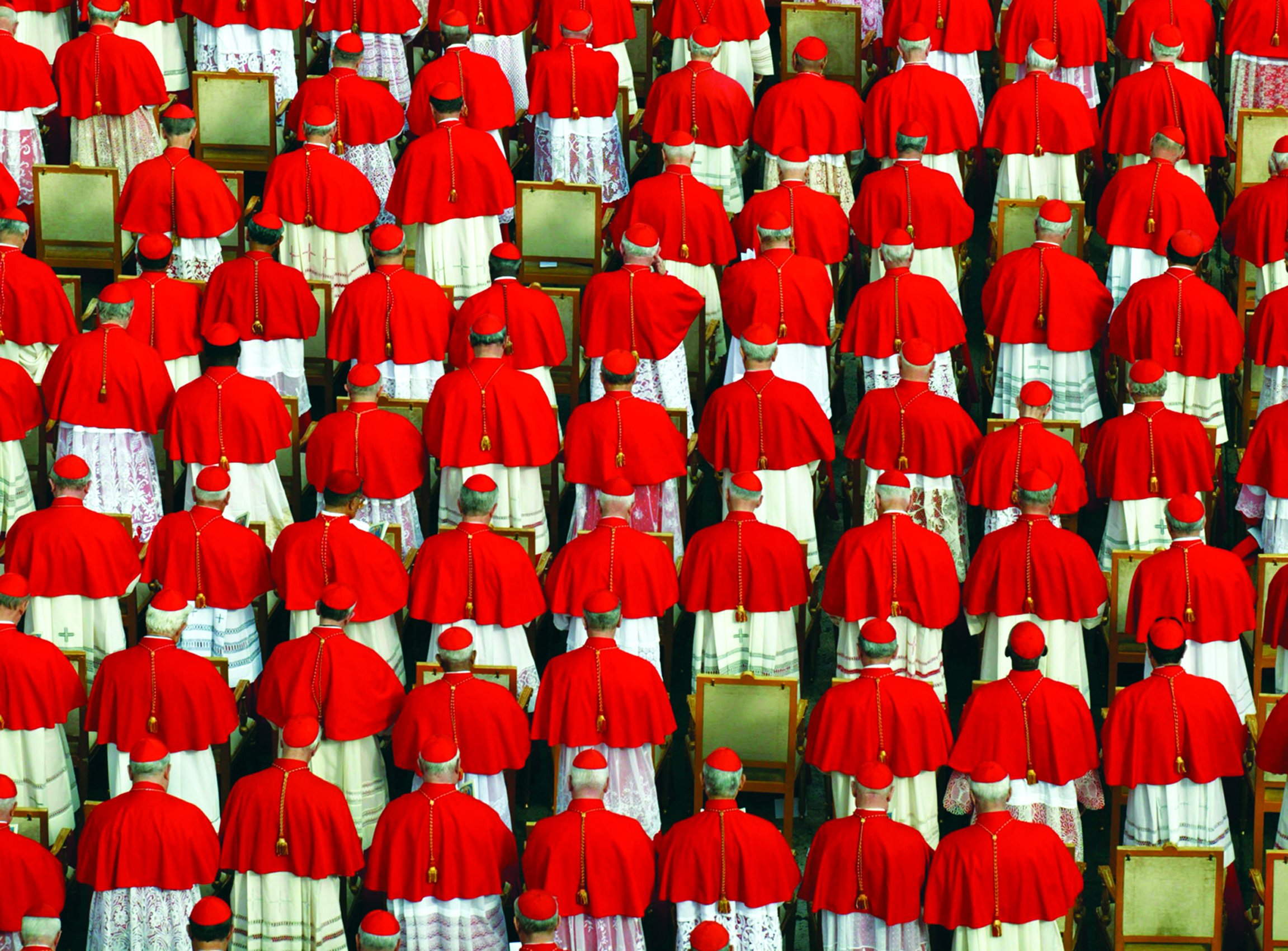
“UBI PETRUS, IBI ERGO ECCLESIA” (“WHERE PETER IS, THERE, THEREFORE, IS THE CHURCH”)
Cardinal Joseph Ratzinger, later to sit on the papal throne as Pope Benedict XVI (2005-2013), made clear in a November 19, 1998 text entitled The Primacy of the Successor of Peter in the Mystery of the Church, that the papacy is a “ministry of unity” that was established in Rome for all time.
He wrote: “In Peter’s person, mission and ministry, in his presence and death in Rome attested by the most ancient literary and archaeological tradition, the Church sees a deeper reality essentially related to her own mystery of communion and salvation: ‘Ubi Petrus, ibi ergo Ecclesia.’ From the beginning and with increasing clarity, the Church has understood that, just as there is a succession of the Apostles in the ministry of Bishops, so too the ministry of unity entrusted to Peter belongs to the permanent structure of Christ’s Church and that this succession is established in the see of his martyrdom.”
Two thousand years later, the task of transferring this “ministry of unity” from one Pope to another in this divinely-ordained succession, remains.
Pope Francis has given no indication of preparing to vacate the Chair of Peter; however, in consideration of his age (86) and various health problems, it is possible that a conclave may be called to elect a new Pope in the not-too-distant future.
The Catholic news website The Pillar discussed in late spring cardinals who, in its view, could be considered among the papabili, that is, possible candidates for the ministry of Peter in the next conclave. And it further proposes that the chances of some of the most likely papabili in recent years seem to be a bit less likely today.
The Pillar points first to Cardinal Luis Antonio “Chito” Tagle of the Philippines, once nicknamed “the Asian Francis” for his similarity to the present Pope, in tone and emphasis, on many issues. The Pope tapped him in 2019 to head Caritas International, the Church’s main world relief arm, but recently replaced him, along with a few others, in a top-management shakeup. Following that, Tagle “has seen his star dim considerably,” The Pillar opines.
Alternately, on the more “conservative” side, Cardinal Péter Erdö of Budapest, Hungary, was thrust into the limelight when Pope Francis visited his city in late April, but some journalists seemed to cast his “conservatism” as an opposition to the Pope (while Cardinal Erdö himself has taken great pains to emphasize his loyal support for Pope Francis).
Among the other names mentioned by The Pillar (but for one reason or another, discounted) were Italian Cardinal Matteo Maria Zuppi, the archbishop of Bologna, recently tapped to act as envoy to Kiev and Moscow in discussions aimed at finding a path to peace in Ukraine; Cardinals Gerhard Müller (Germany) and Raymond Burke (US), said to be “too critical” of Pope Francis; Cardinals Fernando Filoni and Mauro Piacenza, both seasoned Vatican veterans named by Pope Francis as heads of Vatican dicasteries; and men promoted by the Pope from relative obscurity, like Cardinal Lazarus You Heung-sik from South Korea, chosen to lead the Dicastery for Clergy, and the Spanish Jesuit Cardinal Luis Ladaria Ferrer, chosen to head the important Dicastery for the Doctrine of the Faith.
The Secretary of State for Vatican City is usually to be considered a possible papabile as well: under Francis it is Italian Cardinal Pietro Parolin, who has been in the position since the year Francis was elected Pope, 2013. The Pillar observes, however, that under Parolin’s watch a number of questionable financial dealings have occurred, as well as the Vatican-China deal, for which Parolin’s support has never wavered while popular support for it has (some argue) declined.
We have compiled our own list of papabili, though not intending it to be, by any means, exhaustive. Many other names have been “floated” as possible candidates at various times, but here is our present list:
“THE OFFICE GIVEN BY THE LORD UNIQUELY TO PETER”
Code of Canon Law, Section I, Chapter I, Article 1, Can. 331: “The bishop of the Roman Church, in whom continues the office given by the Lord uniquely to Peter, the first of the Apostles, and to be transmitted to his successors, is the head of the college of bishops, the Vicar of Christ, and the pastor of the universal Church on earth. By virtue of his office he possesses supreme, full, immediate, and universal ordinary power in the Church, which he is always able to exercise freely.”
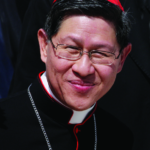 CARD. LUIS ANTONIO GOKIM TAGLE, 65, is the Pro-Prefect for the Section of Evangelization of Dicastery for Evangelization and President of Interdicasterial Commission for Consecrated Religious. He was the 32nd Archbishop of Manila from 2011 to 2019.
CARD. LUIS ANTONIO GOKIM TAGLE, 65, is the Pro-Prefect for the Section of Evangelization of Dicastery for Evangelization and President of Interdicasterial Commission for Consecrated Religious. He was the 32nd Archbishop of Manila from 2011 to 2019.
Tagle, who generally prefers to be called by his nickname, “Chito,” has been involved in many social issues in the Philippines, with emphasis on helping the poor while defending the Catholic Church’s opposition to abortion, contraception, and what he has called “practical atheism.” Dubbed the “Asian Francis,” he is often seen as a representative of the Catholic Church’s progressive wing. Tagle has cautioned the Catholic Church πagainst using “harsh words” in reference to the LGBT movement, as well as divorced and remarried Catholics, whom he believes should be allowed to receive Holy Communion on a case-by-case basis.
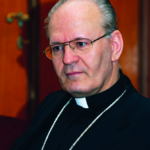 CARD. PÉTER ERDŐ, 70, is a much-respected Hungarian Cardinal of the Catholic Church who has been the Archbishop of Esztergom-Budapest and Primate of Hungary since 2003.
CARD. PÉTER ERDŐ, 70, is a much-respected Hungarian Cardinal of the Catholic Church who has been the Archbishop of Esztergom-Budapest and Primate of Hungary since 2003.
Fluent in five languages, he was president of the Council of the Bishops’ Conferences of Europe from 2006 to 2016 and was the relator general for the Third Extraordinary General Assembly of the Synod of Bishops in Rome (October 5-19, 2014).
Erdő is reputed to have a special Marian devotion to Our Lady of Consolation. He has expressed opposition to the proposal to allow divorced and remarried Catholics whose first marriages have not been annulled to receive Holy Communion, saying in 2014, “Divorced and civilly remarried persons belong to the Church” but in the case “of a (consummated) sacramental marriage, after a divorce, a second marriage recognized by the Church is impossible, while the first spouse is still alive.” He has also said the mass-scale acceptance of refugees into his country would amount to human trafficking.
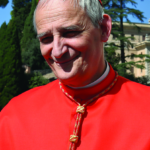 CARD. MATTEO MARIA ZUPPI, 67, has been Archbishop of Bologna since 2015. Pope Francis raised him to the rank of cardinal in 2019. He has been president of the Episcopal Conference of Italy since May 2022.
CARD. MATTEO MARIA ZUPPI, 67, has been Archbishop of Bologna since 2015. Pope Francis raised him to the rank of cardinal in 2019. He has been president of the Episcopal Conference of Italy since May 2022.
He has long worked with the Community of Sant’Egidio, a Catholic lay association devoted to ecumenism and conflict resolution. Zuppi was one of the four mediators of the two-year-long Rome-based peace negotiations that resulted in the Rome General Peace Accords and helped to end the civil war in Mozambique in 1992, in recognition of which he was made an honorary citizen of that country. Zuppi also traveled to Turkey in 1993 in an attempt to secure the release of two Italian tourists held by Kurdish rebels.
As head of the Italian bishops, he faces challenges as the Italian birth rate falls to critical numbers, dioceses struggle to provide transparency amid clergy abuse scandals, and his own diocese has recently experienced deadly floods.
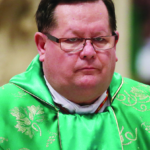 CARD. GERALD CYPRIEN LACROIX, 65, born in Saint-Hilaire de Dorset, Quebec, was raised from age 8 in Manchester, New Hampshire, USA. He joined the Pius X Secular Institute in 1975, and within seven years was named secretary-general of the Institute.
CARD. GERALD CYPRIEN LACROIX, 65, born in Saint-Hilaire de Dorset, Quebec, was raised from age 8 in Manchester, New Hampshire, USA. He joined the Pius X Secular Institute in 1975, and within seven years was named secretary-general of the Institute.
Ordained in 1988, he was 10 years a missionary in Colombia. Returning to Canada, he became director general of the Institute in 2001. He was consecrated a bishop in 2009, named Archbishop of Quebec in 2011, and elevated by Pope Francis to cardinal in 2014.
Significantly, Pope Francis this year named Cardinal Lacroix to his international Council of Cardinals, created by Francis in April 2013 to advise him on the governance of the Universal Church.
In a February 2023 press conference on improving collaboration among laypeople, priests and bishops, Cardinal Lacroix answered his own question, “What is our role as priests and bishops in this beautiful adventure?” by saying, “Well, our main role is to be pastors. We’re not managers, we’re not the boss: We’re pastors, shepherds.”
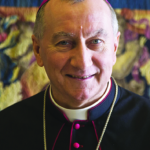 CARD. PIETRO PAROLIN, 68, born in Schiavon, in northern Italy, has been cardinal since February 2014, and has served as the Vatican’s Secretary of State since October 2013. This has made him one of the men with the most high-level experience in governing the Church. He has been a member of the Pope’s Council of Cardinal Advisers since July 2014. Before that, he worked in the diplomatic service of the Holy See for 30 years, where his assignments included terms in Nigeria, Mexico and Venezuela, as well as more than six years as Undersecretary of State for Relations with States.
CARD. PIETRO PAROLIN, 68, born in Schiavon, in northern Italy, has been cardinal since February 2014, and has served as the Vatican’s Secretary of State since October 2013. This has made him one of the men with the most high-level experience in governing the Church. He has been a member of the Pope’s Council of Cardinal Advisers since July 2014. Before that, he worked in the diplomatic service of the Holy See for 30 years, where his assignments included terms in Nigeria, Mexico and Venezuela, as well as more than six years as Undersecretary of State for Relations with States.
In 2014, Venezuela’s President invited Cardinal Parolin to mediate during the nation’s worst unrest in a decade. Under his watch, the Holy See played a major role in the re-establishment of U.S.-Cuba relations. And he was an architect of the somewhat controversial Vatican-China deal, about which he said, “We must be patient.”
In 2022 he said, “The heart of the diplomacy of mercy doesn’t consider anyone ever definitively lost.” The solution to conflicts like the one in Ukraine, he said, “does not come by polarizing the world between the good and the bad.”
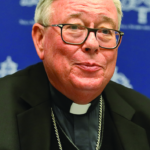 CARD. JEAN-CLAUDE HOLLERICH, S.J., 65, has been Archbishop of Luxembourg since 2011. He has been the president of the Commission of the Bishops’ Conferences of the European Union (COMECE) since March 2018.
CARD. JEAN-CLAUDE HOLLERICH, S.J., 65, has been Archbishop of Luxembourg since 2011. He has been the president of the Commission of the Bishops’ Conferences of the European Union (COMECE) since March 2018.
Cardinal Hollerich studied in Japan from 1985 to 1989 and worked there from 1994 to 2011. Pope Francis raised him to the rank of cardinal in 2019, the first from Luxembourg.
In September 2020, he suggested that “merely cultural Catholicism cannot last over time.” In 2022 he said he approved asking the “big questions” but hoped the German Synod would recognize its obligations to the Church worldwide.
In July 2021, Pope Francis appointed him Relator-General of the next synod of bishops.
In 2022, Hollerich said he considered the Church’s teaching that homosexual relationships are sinful to be wrong: “I believe that the sociological-scientific foundation of this teaching is no longer correct.”
In March 2023, Hollerich was appointed to the Pope’s Council of Cardinal Advisors.
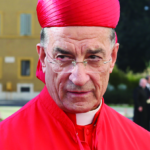 CARD. BECHARA BOUTROS ALRAHI (OR RAÏ), 83, is the 77th Maronite Patriarch of Antioch, and head of the Maronite Church, a position he has held since March 15, 2011. Rahi was made a cardinal in November 2012 by Pope Benedict XVI.
CARD. BECHARA BOUTROS ALRAHI (OR RAÏ), 83, is the 77th Maronite Patriarch of Antioch, and head of the Maronite Church, a position he has held since March 15, 2011. Rahi was made a cardinal in November 2012 by Pope Benedict XVI.
At 71, he was elected Patriarch of the Maronites in March 2011, after getting more than two-thirds of the votes of the 39 bishops. As is customary for all Maronite Patriarchs, Patriarch Raï took the additional name Boutros (Peter); Peter briefly held the See of Antioch before moving to Rome. In March 2012, Patriarch Raï was appointed a member of the Congregation for the Oriental Churches.
In 2022, he said, “We are calling for a special international conference for Lebanon under the purview of the UN. We must also settle the issue of Palestinian and Syrian refugees. Finally, we must declare the positive neutrality of Lebanon. Without this, there is no solution. These are the conditions for the ‘message country,’ as it was called by Pope John Paul II, to continue to bear its witness.”
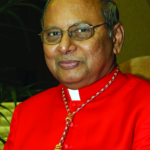 CARD. PATABENDIGE DON ALBERT MALCOLM RANJITH, 75, often known simply as Malcolm Ranjith, is a Sri Lankan prelate of the Catholic Church who has been the Archbishop of Colombo, Sri Lanka, since 2009. He was made a cardinal in 2010.
CARD. PATABENDIGE DON ALBERT MALCOLM RANJITH, 75, often known simply as Malcolm Ranjith, is a Sri Lankan prelate of the Catholic Church who has been the Archbishop of Colombo, Sri Lanka, since 2009. He was made a cardinal in 2010.
Cardinal Ranjith was the first Sri Lankan bishop to be appointed an Apostolic Nuncio; he was sent to Indonesia.
Ranjith was ordained to the priesthood in June 1975 by Pope Paul VI in St. Peter’s Square. Later he joined the tutorial staff of St. Thomas’ College, Kotte, Sri Lanka.
In 1994, Ranjith led a commission that denounced the theological work of Sri Lankan theologian Tissa Balasuriya. He charged that the latter had questioned original sin and the divinity of Christ, as well as supporting women’s ordination.
Ranjith was appointed secretary of the Congregation for Divine Worship and the Discipline of the Sacraments in December 2005. He once said, “I’m not a fan of the Lefebvrians… but what they sometimes say about the liturgy they say for good reason.”
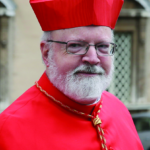 CARD. SEAN PATRICK O’MALLEY, OFM CAP., 78, is the archbishop of the Archdiocese of Boston, Massachusetts, USA, since 2003. He is a member of the Order of Friars Minor Capuchin and was elevated by the Vatican to the rank of cardinal in 2006.
CARD. SEAN PATRICK O’MALLEY, OFM CAP., 78, is the archbishop of the Archdiocese of Boston, Massachusetts, USA, since 2003. He is a member of the Order of Friars Minor Capuchin and was elevated by the Vatican to the rank of cardinal in 2006.
Cardinal O’Malley has been a key member of the Pope’s Council of Cardinal Advisers for almost a decade, and, since March 22, 2014, a member of the Pontifical Commission for the Protection of Minors, and its president since December 17, 2014. In November 2007, O’Malley said that the fact many Catholic voters support Democratic candidates, whose party is pro-abortion, “borders on scandal.” Despite criticism, Cardinal O’Malley assisted at the funeral Mass of pro-abortion Senator Ted Kennedy, commenting that “there is a tragic sense of lost opportunity in his lack of support for the unborn.”
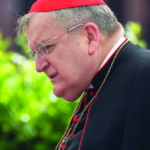 CARD. RAYMOND LEO BURKE, 74, former ordinary of the Archdiocese of St. Louis and the incumbent patron of the Sovereign Military Order of Malta, was the Prefect of the Supreme Tribunal of the Apostolic Signatura from June 2008 to November 2014.
CARD. RAYMOND LEO BURKE, 74, former ordinary of the Archdiocese of St. Louis and the incumbent patron of the Sovereign Military Order of Malta, was the Prefect of the Supreme Tribunal of the Apostolic Signatura from June 2008 to November 2014.
A canon lawyer, Cardinal Burke is often perceived as a voice of traditionalism among Catholic prelates. He is a major proponent of the Traditional Latin Mass.
Cardinal Burke has publicly clashed with Pope Francis, notably on permissive attitudes toward homosexuality and toward divorced Catholics remarried outside the Church. He has also stated his support of denying Holy Communion to pro-abortion politicians.
A vocal foe of the “LGBT” movement, Cardinal Burke ruffled feathers when he said in 2014, regarding “gay” family members, “If it were another kind of relationship – something that was profoundly disordered and harmful – we wouldn’t expose our children to that relationship, to the direct experience of it.”
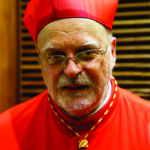 CARD. LARS ANDERS ARBORELIUS, OCD, 73, has been Bishop of Stockholm, Sweden, since 1998, and the first-ever cardinal from Scandinavia, since June 2017.
CARD. LARS ANDERS ARBORELIUS, OCD, 73, has been Bishop of Stockholm, Sweden, since 1998, and the first-ever cardinal from Scandinavia, since June 2017.
Cardinal Arborelius, raised a Lutheran, commented, “I always had this longing for a life of prayer and silent adoration.” After a year-and-a-half-long process of investigation, he concluded that “Truth has been given to me through the Catholic faith,” and converted to Catholicism at the age of 20. Following his conversion, he read St. Therese of Lisieux’s Story of a Soul, and decided to enter the Carmelite order.
Cardinal Arborelius believes that his elevation to the cardinalate was a recognition of Sweden’s accepting immigrants and promoting interdenominational dialogue. In a country dominated by Protestantism, the Swedish Catholic Church has experienced the largest percentage-gain in all of Europe; “Catholic spirituality has had a great impact, [including] on many Protestants. In addition, we stick to Tradition and don’t change our dogmas and ethical principles,” explained Cardinal Arborelius.
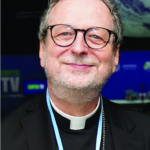 ARCHBP. CLAUDIO GUGEROTTI, 67, is Prefect of the Dicastery for the Eastern Churches since November 2022. He has degrees in Eastern languages and literature and in sacred liturgy. Although Gugerotti did not train at the Pontifical Ecclesiastical Academy as is standard practice for nuncios, he was appointed nuncio to various countries, mostly in eastern Europe, by three Popes. Most recently, he was posted to Ukraine in 2015 and to Great Britain in 2020 before his 2022 appointment to his current position in Rome.
ARCHBP. CLAUDIO GUGEROTTI, 67, is Prefect of the Dicastery for the Eastern Churches since November 2022. He has degrees in Eastern languages and literature and in sacred liturgy. Although Gugerotti did not train at the Pontifical Ecclesiastical Academy as is standard practice for nuncios, he was appointed nuncio to various countries, mostly in eastern Europe, by three Popes. Most recently, he was posted to Ukraine in 2015 and to Great Britain in 2020 before his 2022 appointment to his current position in Rome.
Gugerotti spearheaded efforts to raise money for victims of first, war, and then of a massive earthquake in Syria and Turkey, saying, “That mutilated crucifix invites us to recognize the pain of so many of our brothers and sisters who have seen the bodies of their loved ones tortured under the rubble or hit by bombs.”
Pope Francis is thought to rely on his advice with regard to efforts to end the Ukraine war.
Although Gugerotti is not a cardinal, it is possible that a non-cardinal could be chosen by the cardinal-electors to be the next Pope.
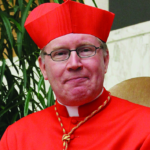 CARD. WILLEM JACOBUS EIJK, 69, has been the Metropolitan Archbishop of Utrecht, the Netherlands, since 2007. A medical doctor before entering the religious life, Cardinal Eijk co-edited the Manual of Catholic Medical Ethics: Responsible Healthcare from a Catholic Perspective, published in 2010.
CARD. WILLEM JACOBUS EIJK, 69, has been the Metropolitan Archbishop of Utrecht, the Netherlands, since 2007. A medical doctor before entering the religious life, Cardinal Eijk co-edited the Manual of Catholic Medical Ethics: Responsible Healthcare from a Catholic Perspective, published in 2010.
He was elected president of the Episcopal Conference of the Netherlands in 2011. In 2015, Eijk was elected to represent the Netherlands at the Bishops’ Synod on the Family that year. In advance, he published an essay stating that divorced and civilly remarried couples represent “a form of structured and institutionalized adultery.”
Commenting on suggestions by some bishops and even the Pope that non-Catholics might be allowed to receive Holy Communion, Cardinal Eijk said, “The practice of the Catholic Church, based on her faith, is not determined and does not change statistically when a majority of an episcopal conference votes in favor of it, not even if unanimously.”
FRANCIS’ APPOINTEES – THE “BERGOGLIAN CARDINALS” – ARE NOW THE MAJORITY
TODAY THEY MAKE UP 63% OF VOTING CARDINALS
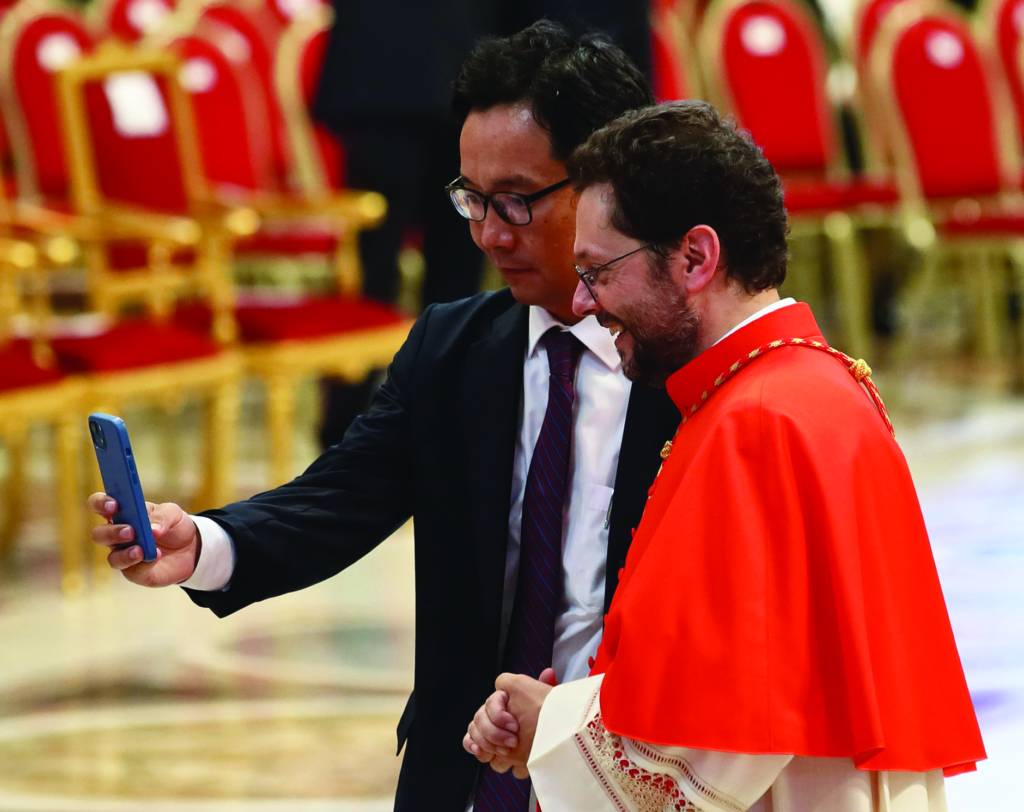
On August 27, 2022, Pope Francis created 20 new cardinals in a ceremony in the Vatican basilica. Cardinal Giorgio Marengo, I.M.C., 48, Bishop Prefect Apostolic of Ulaanbaatar (Mongolia), became the youngest cardinal (Photo Grzegorz Galazka)
The youngest cardinal in the College of Cardinals is Giorgio Marengo, apostolic prefect of Ulaanbaatar in Mongolia. At 48, he has nearly 32 years left to vote in papal conclaves.
And he exemplifies the kind of cardinal Francis has often bestowed the red hat upon: a man “from the peripheries,” who espouses “attraction, not proselytism” as the correct means of evangelization.
Francis has dramatically increased the portion of the college who, like Cardinal Marengo, come from Asia and Africa, from 9.4% each to 16% from Asia and 13% from Africa.
Conversely, European representation in the college is 40%, down from 52% before the last consistory, held in August 2022.
Some say that Francis is “remaking the conclave in his image” in order to assure a successor who will not perform a papal “about-face” on policy issues like immigration and women’s roles in the Church.
They may be wrong.
“The conclave that elected Pope Francis in 2013,” wrote National Catholic Register’s Matthew Bunson at the time of the last conclave, “was the product of Popes St. John Paul II and Benedict XVI.”
“It would thus be unwise,” he concludes, “to deduce that every member appointed by Francis is a kindred spirit to the progressive American and European cardinals who have frequently been promoted since 2013.”
Indeed, as one current cardinal told the French journal La Croix, “When I see a cardinal, I don’t ask myself whether he was appointed by Francis, Benedict XVI or John Paul II. Honestly, there is no group of Bergoglians.”
Another cardinal noted that Francis’ penchant for choosing men from far-flung locales may be a problem for the next conclave.
“It’s going to be very difficult when we have to elect a new Pope. We’re all over the world and we don’t know each other,” he said.

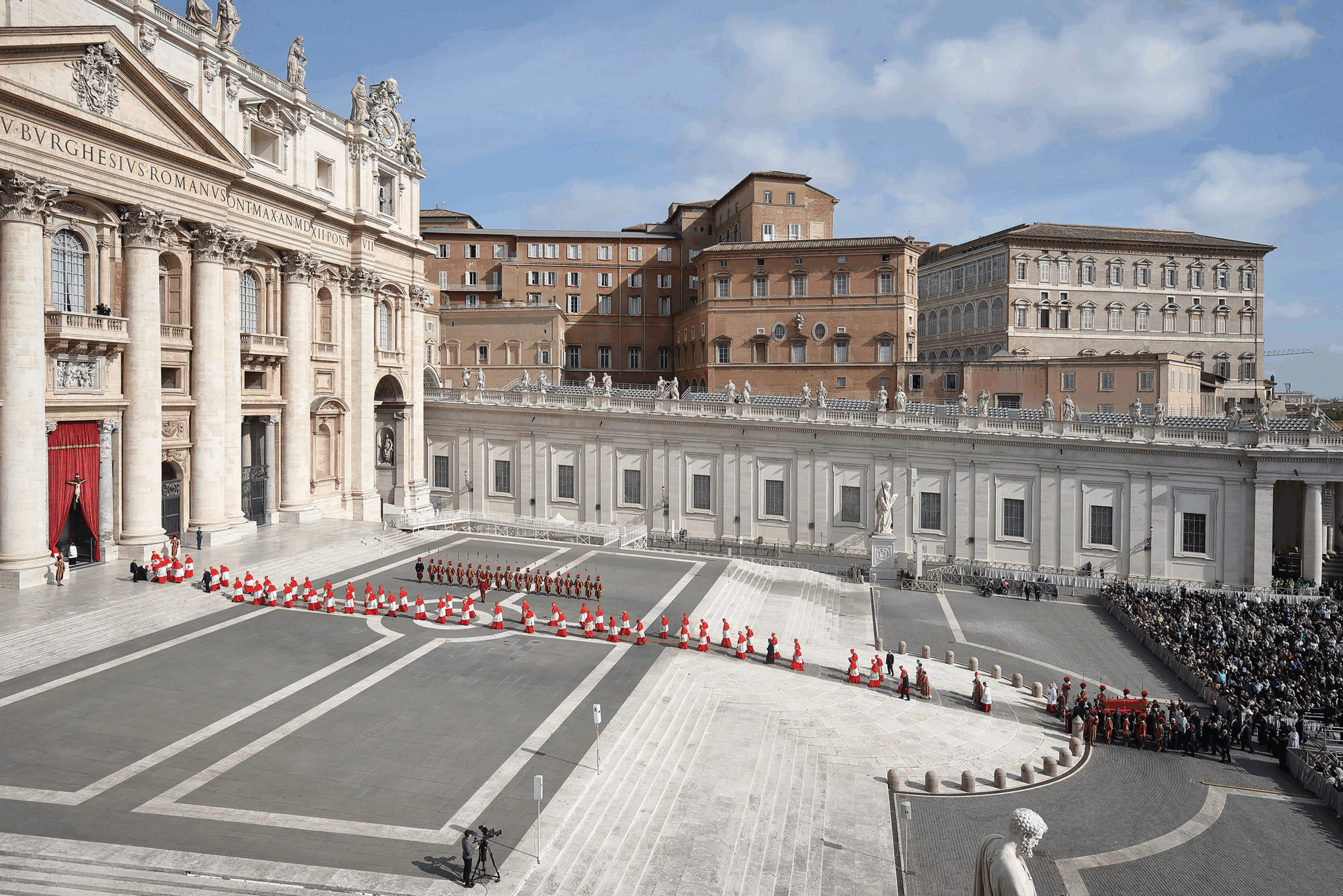




Facebook Comments